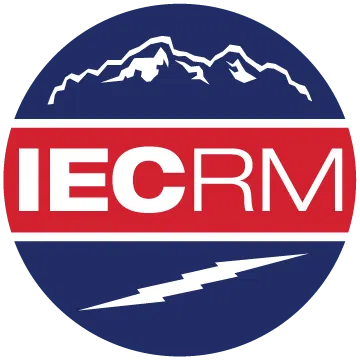A Day in the Life of a Commercial Electrician

Finding the right career for you is important. Every workday, you’ll go to your job and perform the duties that have been assigned to you, so it’s important to understand what a typical day is like in your chosen profession. In the case of a commercial electrician, the day-to-day activities can vary wildly, so while it isn’t a sure answer, it can give you an idea. Consider the career of a commercial electrician’s daily variety and great pay, and you have what makes becoming a commercial electrician worthwhile. IEC Rocky Mountain can help you build your career as an electrician.
A Day in the Life of a Commercial Electrician
Although daily tasks can vary quite a bit in the field, there are some common factors to life as an electrician. Let’s look at what you can expect your life to be like as you work through and complete IEC Rocky Mountain’s electrical training apprenticeship. We’ll start by answering some basic questions people have about the career path before digging deeper into what your workday will be while working in electrical services.
Where Do Electricians Work?
The short answer is that electricians work wherever necessary for electricity. You’ll find electricians working in residential homes to help get the homeowner’s electrical problems fixed, in commercial buildings servicing the repair needs of businesses, and on small and large construction sites as new residential and commercial buildings go up.
An electrician could spend a lot of their day inside the buildings they are working on or could be out in the weather, digging trenches to install conduit or duct banks. They’ll work alone in quiet rooms or amongst a group of construction workers operating loud equipment or pulling wire. A commercial electrician tends to stick to commercial buildings and construction sites. Still, as you can see, the work environment itself is just as varied as the tasks the electrician performs.
Is an Electrician’s Job Dangerous?
Electricity can be extremely dangerous. Nearly every piece of electrical equipment in the home has a warning not to attempt a repair unless you’re a qualified electrician. What separates qualified electricians from the average homeowner is that the qualified professional understands the risks and has been trained to avoid them. This includes the obvious steps, such as shutting off the electricity before touching wires, knowing the right protective equipment to wear, and knowing what can go wrong and how to avoid that.
In addition to electricity, electricians often work in less than ideal environments. There are risks of falling off of ladders, typical construction zone hazards, and other dangers an electrician may face. However, when proper care is taken, being an electrician is one of the safer jobs in the construction industry.
A Day in the Life of an Electrician
The electrician’s day usually starts early, typically around 7 AM. The first thing they do before starting the day is meet with the foreman to get the day’s list of tasks that need to be completed. On larger products, tasks may continue over from the day before. Before getting to work, protective equipment is retrieved and put on.
Once they’ve gotten to work, an electrician may be asked to perform any number of tasks. They may need to diagnose and repair electrical problems, run wires or conduits through newly built walls, test and inspect electrical equipment, and more. While performing these duties, electricians may need to consult with blueprints.
When the workday is over, the electrician will often be required to get approval for the work from the foreman. The foreman will double-check to ensure everything performed by the electrician meets electrical code specifications and any other project requirements. Electricians may need to work late due to unforeseen problems or other delays on large jobs.
When the workday is over, and the foreman has approved the work, the electrician can remove their gear, clock out, and go home.
Can You Train to Be an Electrician on the Job?
Yes. IEC Rocky Mountain has an apprenticeship program to help you do just that. One of the great things about the variety of work an electrician does is that there is plenty of easy work that you can learn quickly and complete as you learn more complex tasks. An apprentice electrician will get paid a starting wage by their employer while they make their way through the training program. During this on-the-job training, the apprentice will work closely with a skilled electrician, learning under expert tutelage in real-world conditions. After training, the apprentice will have transformed into a skilled electrician in their own right.
Is Becoming an Electrician Right for You?
Electricians receive great pay and are in high demand. For the right candidate, this makes it a fantastic job. However, like any industrial job, you won’t be sitting behind a desk in a climate-controlled room. While the job sites aren’t always uncomfortable, they can be. The work requires physical labor, hard work, and a willingness to learn new things. If you feel as though those qualities describe you, it’s worth your time to consider a job as a commercial electrician.
Take Your First Step to a Fulfilling Career Today
If you’ve decided that becoming a commercial electrician is a career path you’d like to pursue, our apprenticeship program can get you started on the right foot. Our four-year program is accredited and thorough. At the end of our program, not only will you come away with the skills of a journeyman electrician, but you’ll do so without any debt.
Image by Tong_stocker shutterstock.com
